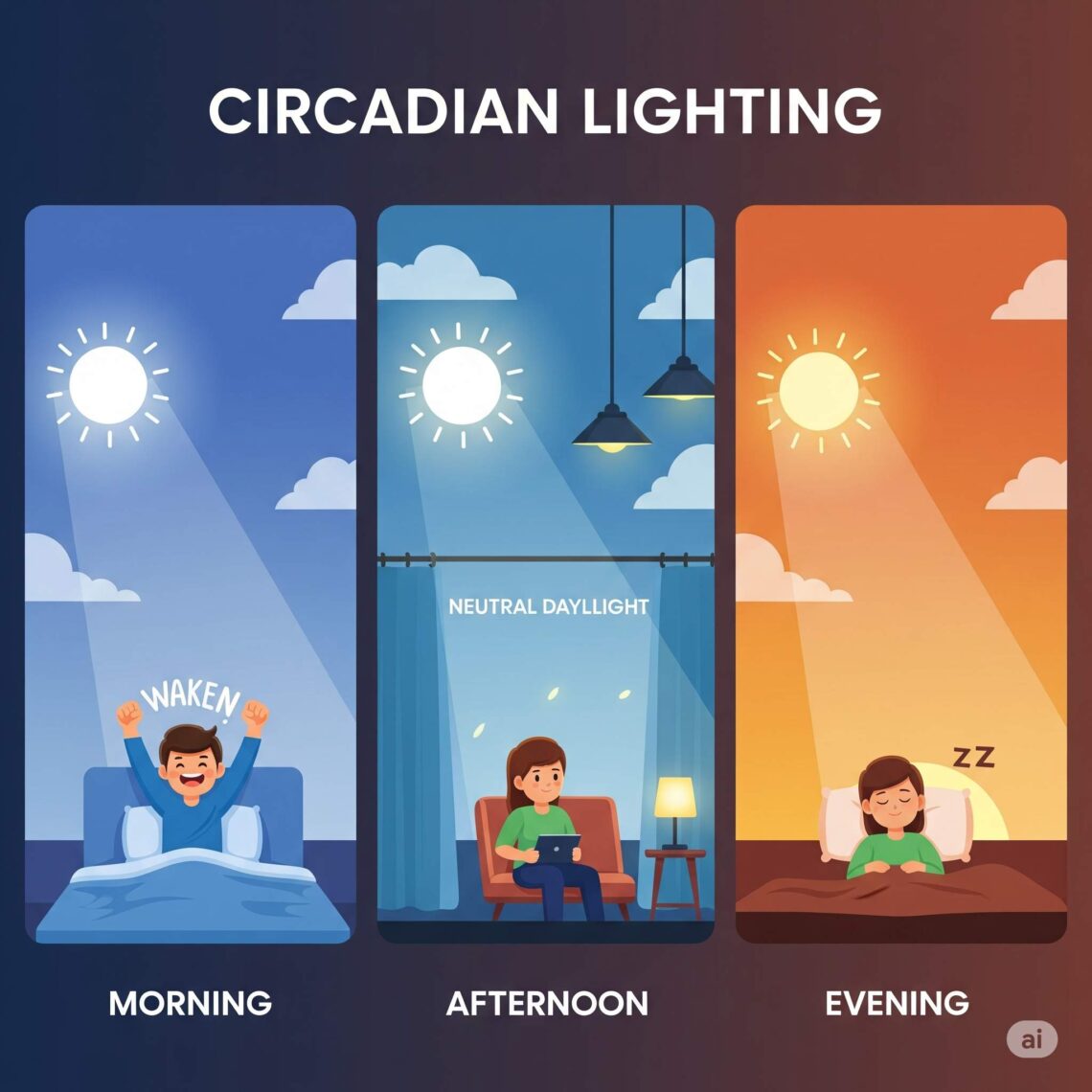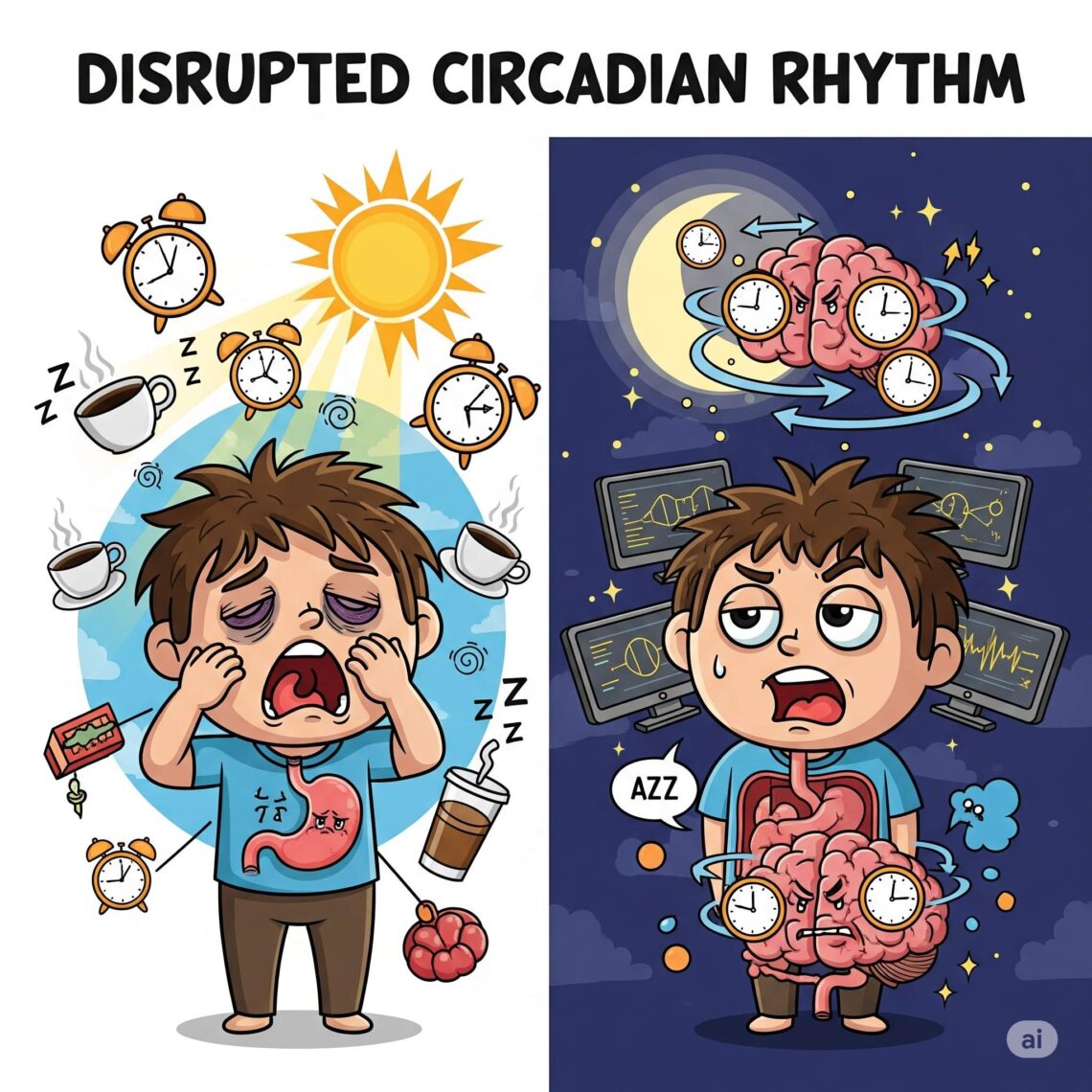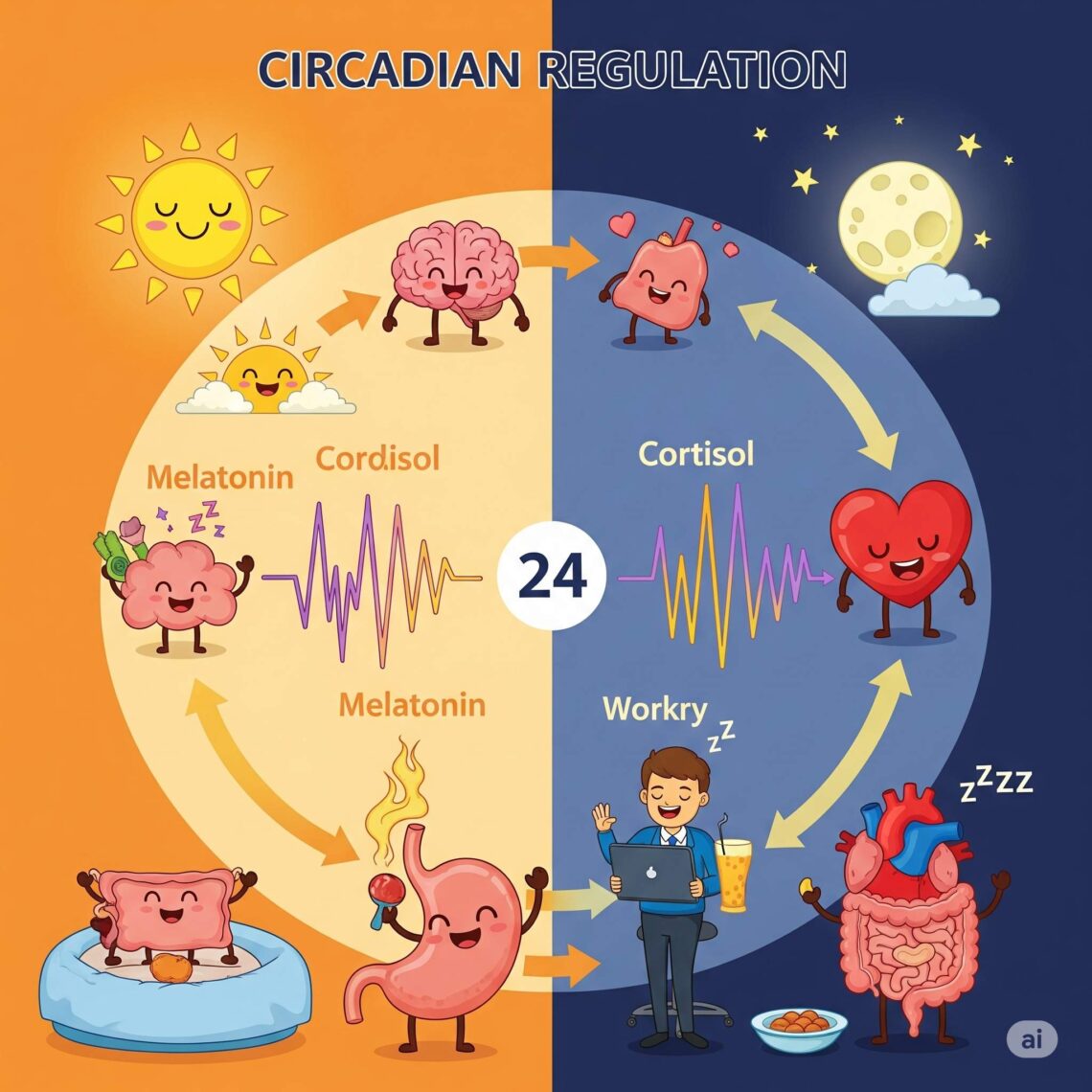In recent years, circadian lighting has become a buzzword in the fields of health, wellness, and interior design. But what exactly is circadian lighting, and why is it so important for your health? This article dives deep into the science behind circadian lighting, its benefits, and practical tips on how to incorporate it into your daily life. Circadian lighting refers to the use of light that mimics the natural patterns of daylight to support the body’s internal biological clock, known as the circadian rhythm. The circadian rhythm is a 24-hour cycle regulating sleep-wake patterns, hormone release, body temperature, and other…
-
-
A disrupted circadian rhythm can negatively impact your sleep, mood, metabolism, and overall health. This internal clock, also known as your biological clock, governs the timing of essential bodily functions over a 24-hour cycle. When this rhythm is thrown off—due to lifestyle habits, travel, or technology—your body may suffer the consequences. Fortunately, there are natural ways to restore your circadian rhythm and feel like yourself again. The circadian rhythm is your body’s natural timekeeper, regulating processes like sleep-wake cycles, hormone release, body temperature, and digestion. It is controlled by a group of nerve cells in the brain’s hypothalamus known as…
-
Circadian regulation plays a crucial role in maintaining your overall health and wellness. This internal system governs your body’s natural 24-hour cycle, affecting everything from your sleep patterns to hormone release, metabolism, and even mental clarity. By understanding and supporting your circadian regulation, you can improve sleep quality, boost energy, and reduce the risk of chronic disease. Circadian regulation refers to how your body manages its internal biological processes according to a 24-hour rhythm, commonly known as the circadian rhythm. This system is controlled by the suprachiasmatic nucleus (SCN) in the brain, which synchronizes your body’s functions with environmental cues—especially…


